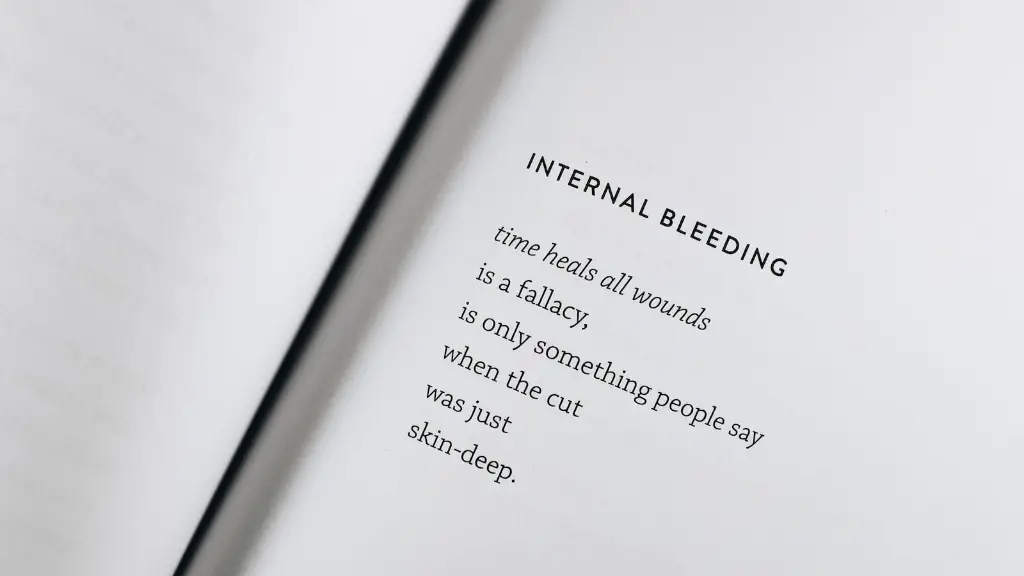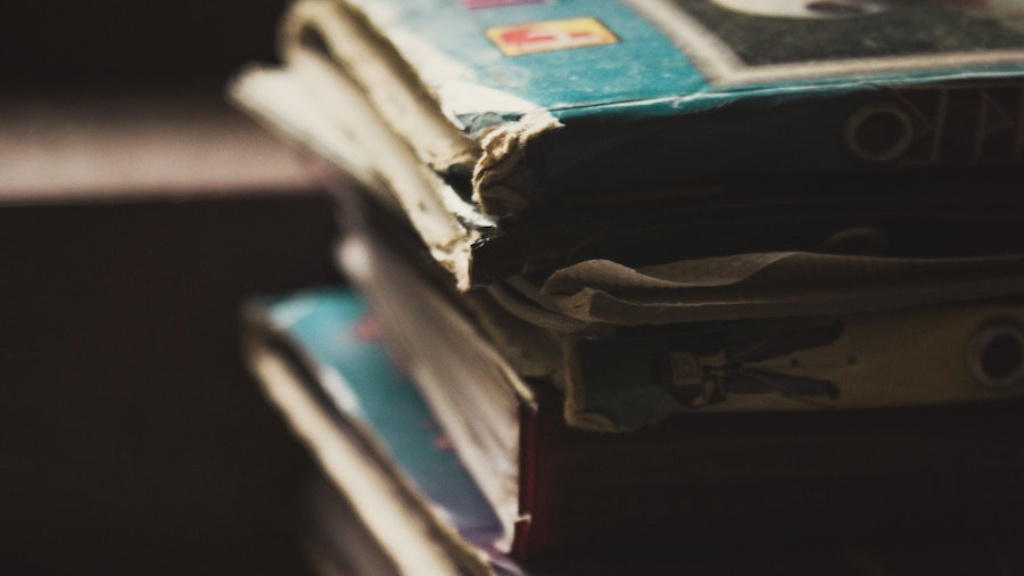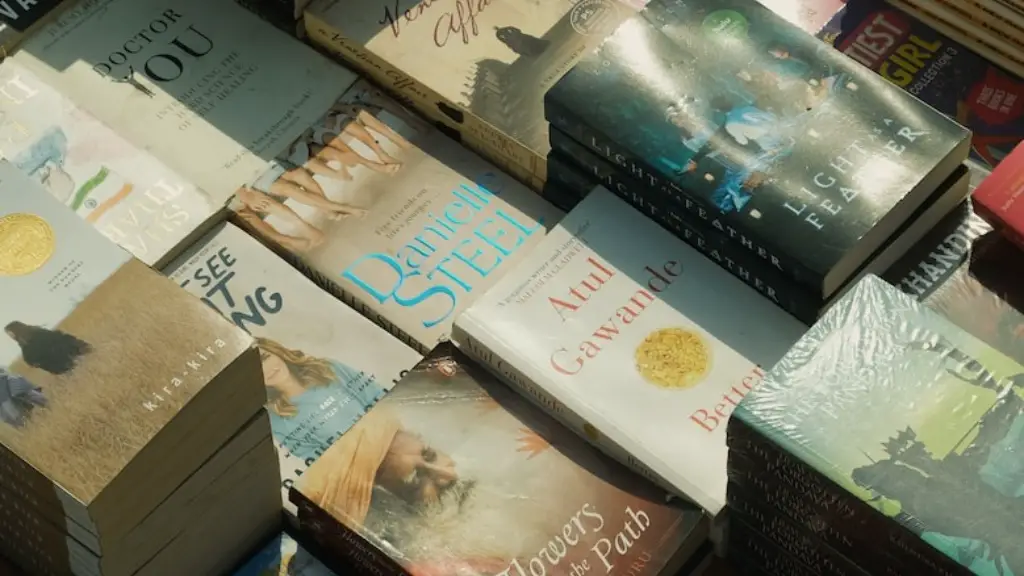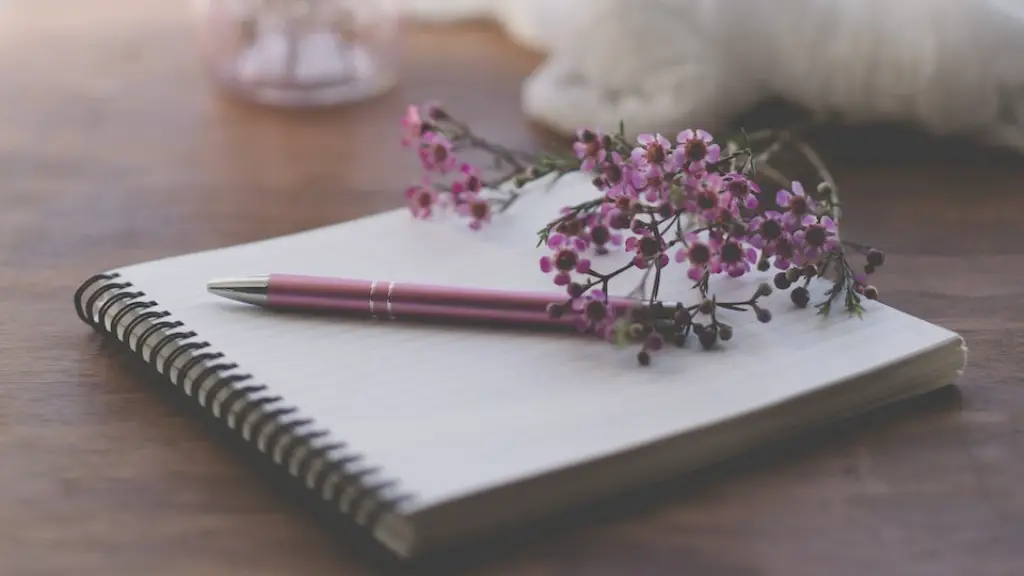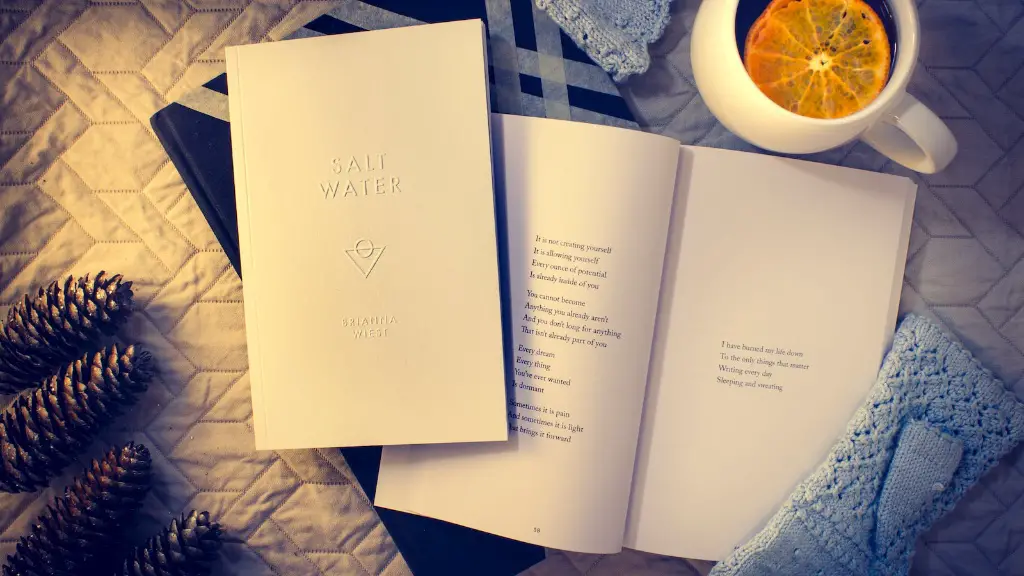Historical Relevance Of Poetry
Poetry has been around since ancient times, going back to Ancient Greek and Roman texts, though the subject has been around for much longer than that. Poetry is considered literature because it is used to communicate ideas, feelings and thoughts in a creative way. Poets use language to convey their feelings and insight which often has a wider relevance to their audience. Consequently, the ability to write meaningful, emotive and cogent verse has been admired throughout history for its beauty and depth.
The works of William Shakespeare, John Donne and Alexander Pope are just some examples of the power of poetic language and its influence on literature. Even today, the amazing words from these authors still shape our language, expressions, and thoughts. These poets have left a legacy which will remain with us for generations and it is often thought that without their contributions literature would have been vastly different.
Over time, the forms of poetry have changed and often become more expansive and intricate. This increase in artistic expression of emotions has also contributed to its integral role in literature.
Simply put, poetry communicates to its audience like no other form of literature can. It creates images and emotions which can capture the imagination in an instant and transport the reader to another realm. It is this ability to capture meaning and emotion in the most creative fashion that separates poetry from many other types of literary works.
Poetry is also associated with other forms of literature such as novels, short stories and plays. Poetry is often used to accentuate the tone of a narrative or dramatise a scene. This can be seen in the works of some of the most popular authors such as J. K. Rowling and J. R. R. Tolkien who both used poetic elements to bring out the emotion present in their stories.
So, while poetry is not necessarily considered part of the traditional definition of ‘literature’, its importance and influence is clear when looking at the impact it has had on culture, language and artistic expression. The power it has to communicate meaning and emotion should not be underestimated.
Distinguishing Characteristics Of Poetic Writing
Poetry is typically distinguished from other forms of literature by its unique use of language and structure. As opposed to novels and short stories, poetry does not necessarily follow a linear narrative. Poets often use rhyme, metre, prose and alliteration to give the poem a distinctive quality and feel. By utilising such poetic devices, poetry can portray complex messages in a rather artistic way.
The use of these devices may sometimes depend on the type of poem being written. For instance, sonnets usually follow a particular syllable pattern, while haikus are limited to three lines with a five-seven-five syllable count. Similarly, limericks often employ a five-line rhyming structure. In each type of poem, the shape and use of language plays an essential role in transporting the reader to a new realm of emotion and understanding.
But what makes poetry even more unique is how it plays on powerful emotions. Poetic pieces may focus on love, joy, grief or even nostalgia. In other words, poetry has the ability to touch its readers in ways that few other forms of literature can. Moreover, the use of such powerful emotions can often result in feelings of understanding, elation and belonging.
Lastly, it is impossible to ignore the beauty of its language. While other forms of literature can often be dull and monotonous, poetry has the ability to bring beauty to the page. Poetic language can be full of vivid imagery, subtle expressions and powerful metaphors. This can often make the poem stand out amongst other pieces of literature.
The Benefits Of Reading Poetry
The power of poetry is undeniable, and it can be immensely enjoyable to read. Poetry creates a connection between its readers and its authors, as the reader can often relate to the emotions and experiences portrayed in the poem. It provides a sense of understanding and belonging, which can be a great source of comfort and solace.
In addition, poetry can improve reading comprehension and provide insight into the language. By being exposed to the different form of language used, readers can further their knowledge of the English language, both expressive and colloquial.
It can also be beneficial for young readers looking to build their writing skills and overcome shyness. By exploring a range of poetic works, children can develop their understanding of language and its power. This is especially useful for overcoming writing blocks and finding the courage to write their own poems.
Finally, poetry can also be used to break the monotony of mundane life. Reading poetry is a great way to escape reality, if only for a little while, and can help to reshape our thoughts and perspectives. Moreover, it is a great way to spark creativity, imagination and new ideas.
Examples Of Notable Poets
There is no denying the impact poetry has had on literature, and the list of inspirational poets goes on and on. Some of the most notable poets who have left a lasting impression on the world of poetry include, but are not limited to, William Blake, Charles Bukowski, Maya Angelou and Robert Frost. Each of these poetic geniuses have written works that have resonated with their audiences, leaving a lasting mark on the literary world.
William Blake, for example, was an English poet and artist known for his vivid and imaginative work. His pieces, such as ‘The Tyger’ and ‘The School Boy’ are still widely read and taught even today, providing generations of students with timeless work and insightful commentaries about life and the society.
Charles Bukowski is another example of a creative genius whose work managed to capture the attention of a wide audience. His works are often seen as reflections on his own tougher life, as they explore topics such as gritty realism, poverty and broken dreams. Bukowski’s works also often employ irony and blunt expressions, which makes them widely enjoyed.
Maya Angelou was an American poet and activist who worked extensively in theatre, books, television and film. Her works are often considered to be her reflections of her own struggles as she explored and expressed her thoughts about the events that were unfolding around her. Her pieces often had an underlying message of breaking free from oppressive forces, which resonated with her readers.
Finally, Robert Frost was an American poet whose works often focused on nature and rural life in New England. His poems, such as ‘The Road Not Taken’ and ‘Stopping by Woods on a Snowy Evening’ have been celebrated for their captivating poetic imagery, offering a glimpse into the mind of a poet.
Modern Application Of Poetry
The world of poetry has expanded greatly in recent years, with more and more poets finding innovative ways to apply the art form. For instance, more and more authors are now incorporating poetry into their works, as we can see in some of the more contemporary novels and short stories.
Famously, J.K Rowling included a poem in her book, Harry Potter and the Deathly Hallows. This poem not only encapsulated the theme of the novel, but also exemplified how poetry can play an important role in storytelling and plot development. This has inspired more authors to take on the concept, with some even writing entire novels in poetic form. Examples include Jayoine Elizabeth Scott’s The Road That Led To Somewhere and Lisa Dordal’s The Book Of Hours.
The Internet has also played a significant role in popularising poetic works. Social media sites such as YouTube, Instagram and Twitter are now flooded with shareable content, including music collaborations and spoken word pieces. This has only served to increase poets’ reach and has opened up the door to an entirely new audience.
Moreover, it has even allowed poets to directly interact with their readers. Such platforms provide a forum in which poets can discuss their themes and inspirations, not to mention a wonderful platform for open communication between poets and their readers.
So, as we can see, poetry continues to play an important role in literature, with its influence only growing with each passing day.
Conclusion Of Poetry’s Place In Literature
Poetry is a unique form of literature which has been around for centuries. It is often used to express feelings and emotions in a unique and creative way. It can communicate with its readers and touch them in ways that few other forms of literature can.
Moreover, there are numerous benefits to reading poetry, from improving one’s language skills to hinting at deeper and more profound meanings. Poetry has been shaped and shaped itself through the ages and its influence continues to grow even today.
Finally, it is clear that poetry is here to stay and will always have a place in literature. Its endearing nature and ability to stir powerful emotion will ensure that it is never forgotten. The impact of poetry will remain with us, forever.
